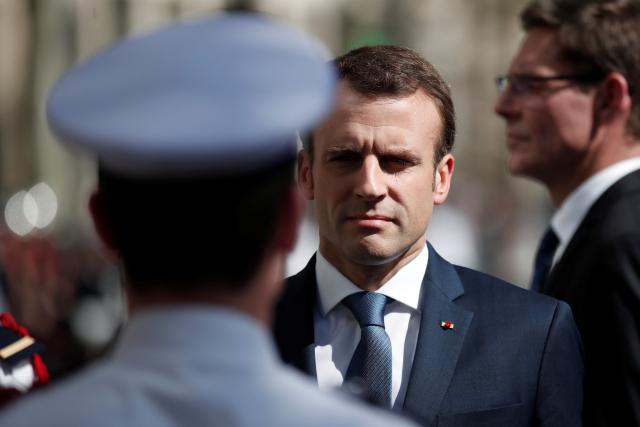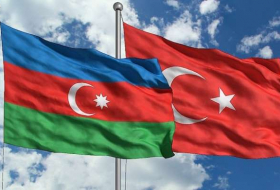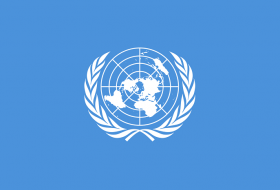When Emmanuel Macron was elected president of France last year, he was presented as a kind of European savior, a wunderkind who had burst onto the French political scene just in the nick of time. Now, many are asking, with a combination of schadenfreude and defeatism, whether Macron’s star burned too bright – and is thus destined to burn out fast. But this focus on Macron’s record so far threatens to overshadow his crucial message about the future of European democracy.
Macron won the French presidency not by appropriating veiled nationalist-populist messages, as Mark Rutte did to hold on to power in the Netherlands, but by championing a positive and robust pro-European platform. With his ambitious calls for European unity and dogged support of liberal democracy, Macron inspired hope that the wave of anti-European populism had crested, and that real progress was on the horizon.
But the last year has produced, at best, mixed results. Germany’s federal election last September delivered a weak mandate for Chancellor Angela Merkel, and established the far-right Alternative für Deutschland as a real political force. This was followed in February by the ignominious resignation of European cheerleader Martin Schulz as leader of the Social Democrats.
In Italy’s general election in March, the populist Five Star Movement and the far-right League party together won more than 50% of the vote. And, in Hungary earlier this month, Prime Minister Viktor Orbán, the poster child of illiberal democracy, secured a third term – and the chance to reshape the constitution – with a large majority. Clearly, Macron’s victory did not mark the beginning of a new era of European politics so much as the beginning of yet another chapter in the ongoing struggle for the future of Europe.
Macron delivered this very message earlier this month while addressing the European Parliament in Strasbourg , where he declared that “European democracy is our best chance,” and called for a “new European sovereignty” that would protect and provide for the European Union’s citizens. He also addressed directly the issue of complacency: “I don’t want to belong to a generation of sleepwalkers that has forgotten its own past. I want to belong to a generation that has decided forcefully to defend its democracy.”
Macron’s rousing call to arms is the latest development in a diplomatic offensice that included hobnobbing with Saudi Crown Prince Mohammed bin Salman and frank discussions about EU-Turkey relations with Turkish President Recep Tayyip Erdoğan. That effort is now continuing, with the jupiterian Macron meeting the mercurial Donald Trump in Washington, DC, this week. Earlier this month, both leaders – along with British Prime Minister Theresa May – ordered strikes on Syrian military installations, following a chemical-weapons attack on rebel-held territory allegedly carried out by President Bashar al-Assad’s forces.
Some argue that Macron’s soaring pro-European rhetoric and outsize international personality amount to a ploy to boost his popularity within France. After all, his attempts to reform the French economy, public sector, and labor markets – not to mention his perceived elitist pretensions and imperialist tendencies – have produced a swift and severe backlash.
This is almost certainly true. But so what? Virtually all politicians try to leverage their international status to boost their standing at home. And, whatever his motive, Macron’s message is sound.
Yet even Macron’s supporters fail adequately to defend that message, instead getting caught up in the practical challenges ahead. This is the “yes, but” crowd: “Yes he is right about Europe,” they say, “but he has to reform the French economy first,” or “he can’t succeed without more German support.”
The criticisms are not unwarranted. To be an engine of change in Europe, France must undergo a deep structural transformation, which, as student protests at Sciences Po and railway strikes across France show, will be very difficult. And to reform the EU, Macron will need German backing, which may not be in the offing, given the apparent turn by Merkel’s coalition away from deeper European integration.
The danger is here is that by tying the message too tightly to Macron and his achievements, we may devalue the underlying ideas. France might not get its act together, and Merkel might not leap to reform Europe’s monetary union. But that does not change the fact that Europe needs to evolve. It needs new ideas and, most important, a new animating spirit.
In his Strasbourg speech, Macron set out a potent agenda: the EU must convince its citizens that it deserves their support, by engaging with them directly and offering a compelling narrative that emphasizes the Union’s unwavering commitment to liberal democracy. But he cannot do it alone.
Rather than poke holes in Macron’s methods or circumstances, Europeans should view his message as a challenge. Everyone who believes in the EU must step up to strengthen it, not just by offering ideas, but also by fighting for their realization. Leadership is needed at all levels.
Macron might be a talented soloist, but what Europe needs now is a chorus. Unfortunately, too few voices have been ringing out.
Ana Palacio, a former Spanish foreign minister and former Senior Vice President of the World Bank, is a member of the Spanish Council of State, a visiting lecturer at Georgetown University, and a member of the World Economic Forum's Global Agenda Council on the United States.
Read the original article on project-syndicate.org.
More about: Macron
















































